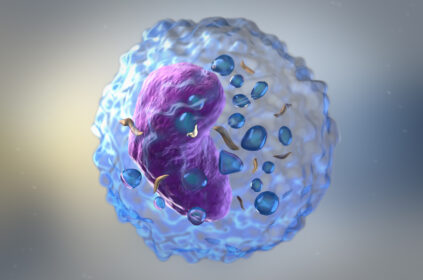Fusobacterium nucleatum (Fn) is a bacterium that is most often found in your oral cavity. In healthy individuals, FN is rarely seen in the gastrointestinal tract. According to research from the Fred Hutchinson Cancer Center, we now know that FN can be a driver of gastrointestinal disease and cancer.
The Fred Hutchinson Cancer Center sought out to understand how FN moves from the mouth to the gut – and what that could mean for cancer development. More specifically, the research team was looking at colorectal cancer development. The World Health Organization (WHO) says that colorectal cancer is the second leading cause of cancer-related death worldwide. Learning more about this cancer could aid in early diagnosis and treatment, as well as finding better treatment options.
FN Surprises
To begin, the research team looked at colorectal cancer tumors taken from 200 individuals. They then measured FN levels within the tumors. As they explain in their research findings, published in Nature:
High intratumoural Fn loads are associated with recurrence, metastases and poorer patient prognosis.
In short, having more FN in your colorectal cancer tumor means that your cancer is more likely to come back or spread.
The researchers also compared stool samples taken from people with colorectal cancer to stool samples from healthy individuals. Through their research, the team identified a number of surprises. First, there were two distinct lineages of FN belonging to the animalis subspecies (FNa). These lineages are called clades; in this case, there is clade 1 (C1) and clade 2 (C2). As shared in the research article:
Of these, only Fna C2 dominates the CRC tumour niche. Inter-Fna analyses identified 195 Fna C2-associated genetic factors consistent with increased metabolic potential and colonization of the gastrointestinal tract.
What this means is that the genetic differences in FNa C2 mean that this clade is better able to travel from the oral cavity to the gastrointestinal tract. FNa C2 is also able to handle stomach acid better than its C1 counterpart. When testing the colorectal cancer tumors, the research team also found that FNa C2 (NOT C1) is heightened in colorectal cancer tumors and is found in about 50% of tumors. Finally, C2 was also found in heightened levels in stool samples from people who have colorectal cancer.
Moving forward, researchers believe that this could assist in the development of more targeted therapies.
About Colorectal Cancer
Colorectal cancer forms in the colon or rectum. It is the 4th most common cancer in the United States among men and women combined. Something that separates colorectal cancer from other forms of cancer is that it is often preventable with early screening and highly treatable in early stages. Colorectal cancer often begins as benign polyps in or outside of the colon, which can become cancerous over time. Colonoscopies can identify and remove benign and pre-cancerous polyps. Doctors recommend that everyone begin regular colorectal screening at age 45. However, cases of this cancer are occurring in younger individuals. If you have gastrointestinal symptoms such as chronic diarrhea, abdominal pain, or bloody stool, please speak with your gastroenterologist to see if a colonoscopy is right for you.
There are risk factors that increase your risk of colorectal cancer. These include being older than 50 years old, being African-American, having inflammatory intestinal conditions, smoking, being obese, having a low-fiber and high-fat diet, alcohol use, and prior radiation treatment.
As colorectal cancer progresses, individuals may experience symptoms such as fatigue and general weakness, blood in the stool, rectal bleeding, a feeling that your bowels don’t completely empty, a persistent change in bowel habits (such as chronic diarrhea or constipation), and losing weight without trying.
colon cancer colorectal cancer medical research microbiome oncology
Last modified: April 4, 2024











